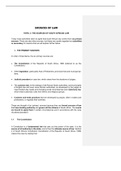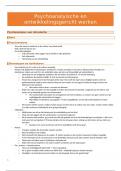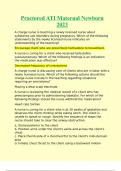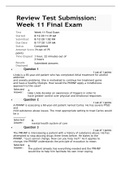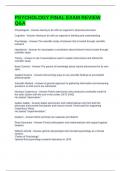Other
Introduction to law exam study notes
- Institution
- University Of The Witwatersrand (wits)
This document contains compiled Introduction to Law study notes which can be used for quizzes, tests, and exam prep. It covers the content on some of the main topics and includes summarised yet detailed relevant prescribed cases and their relevant judgments.
[Show more]
